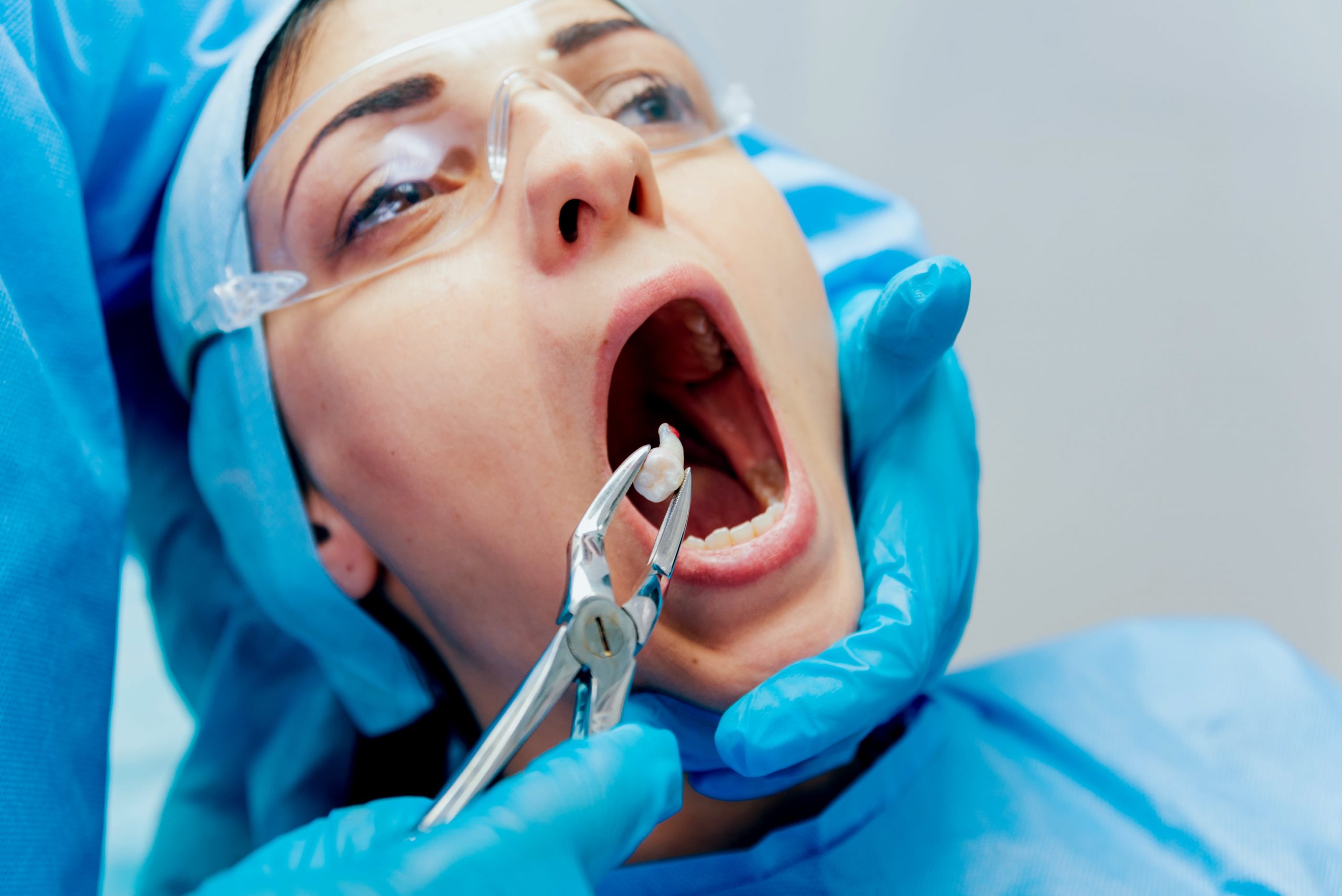
Extracting wisdom teeth is a common dental procedure to remove one or more wisdom teeth (the four permanent adult teeth at the back of your mouth).
If your wisdom tooth does not have enough space to grow, it becomes impacted, resulting in infection, pain and other dental issues – this makes removing the tooth necessary. Wisdom tooth extraction is a surgical procedure that requires the attention of an oral surgeon or dentist.
Most dentists and oral surgeons recommend removing the wisdom tooth even when it is not impacted to prevent problems in the future.
Book an AppointmentWisdom teeth, also called third molars, are the last permanent teeth to come in, and they usually grow between 17 – 25 years. However, some persons do not develop wisdom teeth, and some have their wisdom teeth erupt normally – like the other molars – so they cause no problems.

If you have impacted wisdom teeth, it may likely cause the following problems;
Some dental professionals are against extracting impacted wisdom teeth that do not cause symptoms. However, it’s difficult to know if an impacted wisdom tooth will cause problems in the future.
Below are some reasons for preventivewisdom tooth extraction;
In most cases, wisdom tooth extractions don’t cause long-term complications. Still, impacted wisdom tooth removal may require surgery which involves making an incision in the gum tissues and removing bone.
The following are complications from wisdom teeth removal, but they rarely occur;
You may have your wisdom tooth extraction in your dentist’ office, but if the tooth is severely impacted or the extraction requires surgery, your dentist may refer you to an oral surgeon. The dentist or oral surgeon will give you a local anaesthetic before the procedure and may suggest administering a sedative to make you more comfortable during the tooth extraction.
While preparing for your wisdom tooth extraction, consider asking your dentist or oral surgeon the following questions: how many wisdom teeth you need to remove, how long the procedure will take, and how long it will take to heal.
In most cases, tooth extraction is an outpatient procedure so that you can go home on the same day after the procedure. Your dentist or surgeon will advise you on what to do before and after the surgery.
The instructions will cover your medication, including prescribed and over-the-counter medication, foods to eat, and your oral hygiene routine.
Your oral surgeon or dentist may administer a local anaesthetic, sedation anaesthetic, or general anaesthetic, depending on how complex the wisdom tooth extraction is and comfort level.
During the procedure, the dental professional will:
If your dentist administered a sedative or general anaesthetic, you would need to stay in a recovery room after the procedure. If you have local anaesthesia, your recovery period will likely be in the dental chair.
Ensure you follow your dentist’ instructions for recovery. The instruction may include:
Ensure you call your oral surgeon or dentist if you experience the following symptoms after your wisdom tooth extraction;
These symptoms are usually signs of an infection, nerve damage or other serious complications that need immediate attention.
If you have impacted wisdom teeth or are concerned about your wisdom teeth coming in, visit Smile Clinic London to see a dentist or call 020 7139 8611 to schedule an appointment for a check-up.